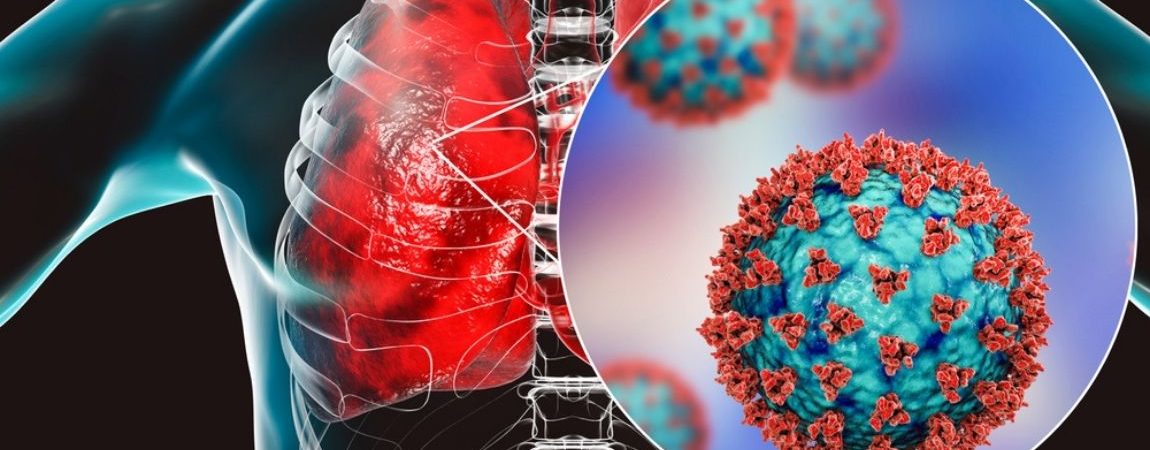How Vitamin D Could Reduce Lung Inflammation in Covid-19
There is no doubt that the COVID-19 pandemic has turned the whole world on its head. However, along with all of the grief and challenges, there have been an amazing number of medical discoveries made out of a sense of urgency. In addition to implementing the widespread use of the mRNA vaccine technology, medical researchers have also learned more about the role of vitamin D in the treatment of lung inflammation: As the world continues to grapple with the ongoing pandemic, a promising new study revealed that vitamin D could reduce lung inflammation. Read on for more about this growing body of research and how vitamin D can boost your overall health.
More About Vitamin D
Vitamin D is an essential nutrient that the body needs for numerous processes, including building and supporting healthy bones. Because the body can only take in and use bone-building calcium when vitamin D is also present, it is critical that this nutrient is always available in plentiful supply.
Unfortunately, much of the global population suffers from a vitamin D deficiency. This is largely because the nutrient is not found naturally in a lot of foods. While you can get it from fortified foods, the body also makes vitamin D when exposed to direct sunlight. This is why vitamin D deficiency generally increases during the winter months when sunlight is not as readily available.
Benefits of Vitamin D to Overall Health
 While everyone is aware of the role that vitamin D plays in building and maintaining strong and healthy bones, not everyone knows that the nutrient is also responsible for a variety of additional cellular functions. Because it functions as an anti-inflammatory, the vitamin protects the muscles as well as brain cell activity. The antioxidant properties of the nutrient are vital in its support of a properly functioning immune system.
While everyone is aware of the role that vitamin D plays in building and maintaining strong and healthy bones, not everyone knows that the nutrient is also responsible for a variety of additional cellular functions. Because it functions as an anti-inflammatory, the vitamin protects the muscles as well as brain cell activity. The antioxidant properties of the nutrient are vital in its support of a properly functioning immune system.
If you are suffering from a lack of vitamin D, it is not unusual for your bones to soften and possibly thin. This can lead to conditions such as osteoporosis. Insufficient amounts of vitamin D may also cause rickets, a rare condition in which the bones soften and start to bend. In severe cases, a vitamin D deficiency can cause osteomalacia, triggering muscle weakness and weak bones accompanied by pain.
How Vitamin D Could Reduce Lung Inflammation
Scientists and medical researchers are learning more and more each day about how to treat and prevent the COVID-19 virus. One particular study is shedding light on how vitamin D could help fight severe cases of COVID-19 as the nutrient works to lower the hyper-inflammation at the hands of the immune cells.
The study was a joint project by Purdue University and the National Institutes of Health (NIH). In the study, researchers demonstrated how the active metabolite form of vitamin D functions to turn off the inflammation that happens in the body when COVID-19 invades. The scientists hypothesize that the presence of vitamin D helps to accelerate the natural transition to the anti-inflammatory phase of a virus progression.
The results of the study point to the unique role that this vitamin can play in the fight against COVID-19. As the virus invades the body, the vitamin seemingly activates the important T-cell functions that help to keep inflammation levels down so that the body can fight off the infection. This knowledge could provide more insight into the role of this vitamin in the treatment of additional respiratory viruses.
How to Get More Vitamin D in Your Diet
While it is easy to fall into a vitamin D deficiency, it is also easy to ensure that you are taking in enough vitamin D. Here are the best ways to get more vitamin D in your diet.
Foods Rich in Vitamin D
While vitamin D is not as plentiful in foods as its counterparts A and C, you can still find this nutrient in a wide array of foods. The best sources of food rich in this nutrient include fatty fish such as salmon, seafood, mushrooms and egg yolks. There are also a variety of foods that have been fortified with this vitamin, including many cereals, bread, milk, orange juice and tofu.
Sunlight
 One of the best sources of natural vitamin D is the sun. This is because the body is able to make its own vitamin D when it is exposed to the sun's UV-B rays. You will be able to produce more vitamin D naturally through the sun if you live closer to the equator due to the proximity to the rays.
One of the best sources of natural vitamin D is the sun. This is because the body is able to make its own vitamin D when it is exposed to the sun's UV-B rays. You will be able to produce more vitamin D naturally through the sun if you live closer to the equator due to the proximity to the rays.
Supplements
Many health-conscious people have already discovered that taking a supplement is the best way to ensure that you are taking in enough vitamin D. A supplement such as Immunchron is designed to boost immune function through the use of a host of vitamins and minerals, including vitamin D3.
The many benefits of vitamin D are widely known, with likely more advantages linked to sufficient intake of this nutrient still to be discovered. You can protect your health from a variety of illnesses and diseases by being purposeful about staying on top of your vitamin D intake.





